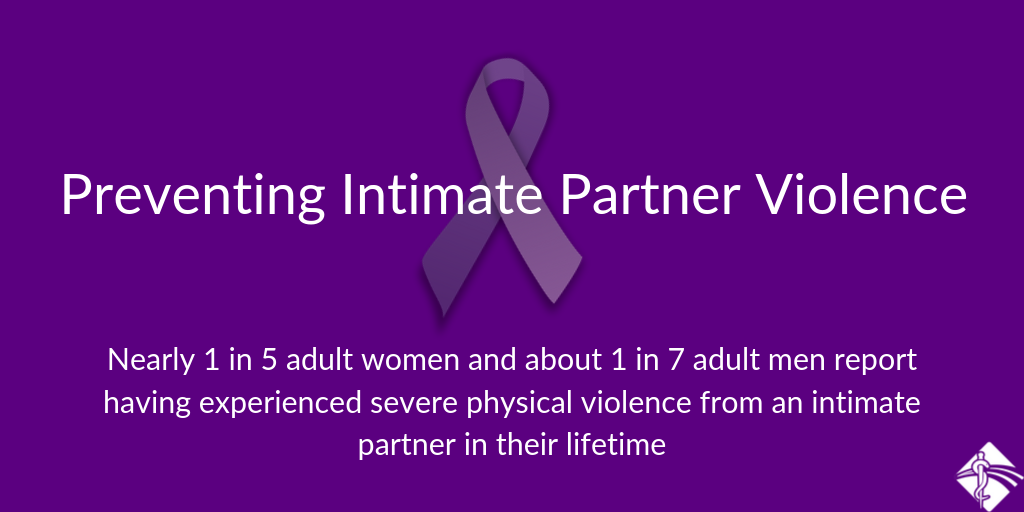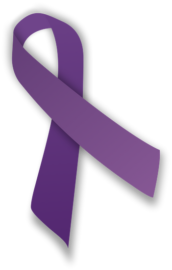
Domestic Violence Awareness Month
October is Domestic Violence Awareness Month
View our Domestic Violence Resources
- Nearly 1 in 5 adult women and about 1 in 7 adult men report having experienced severe physical violence from an intimate partner in their lifetime.*
- About 1 in 6 women and 1 in 12 men have experienced contact sexual violence from an intimate partner (this includes rape, being made to penetrate someone else, sexual coercion, and unwanted sexual contact).*
- Ten percent of women and 2 percent of men report having been stalked by an intimate partner.*

Domestic Violence Management and Survivorship
Domestic violence is frequently encountered by healthcare providers and should be addressed properly. Victims are often not recognized, and lack of knowledge on adequately identifying domestic violence is commonly presented as a barrier. Healthcare providers often need information to assist with identifying subtle and not so subtle signs of domestic violence.
Intimate Partner Violence
According to The National Center on Domestic Violence, Trauma & Mental Health, research conducted over the past 30 years has consistently demonstrated that being victimized by an intimate partner increases one’s risk for developing depression, PTSD, substance abuse, and suicide, as well as a range of chronic health conditions. A tremendous barrier to diagnosing and treating domestic violence is a lack of knowledge and training for clinicians. It is essential that professionals providing care to at risk populations recognize the mounting evidence of associated health problems in domestic violence survivors.
Learn more about these articles of the Southern Medical Journal which focus on domestic violence.
- Domestic Violence in a University Emergency Department
- Women's Experiences With Domestic Violence and Their Attitudes and Expectations Regarding Medical Care of Abuse Victims
- Screening for Domestic Violence: Practice Patterns, Knowledge, and Attitudes of Physicians in Arizona
- Domestic Violence Incidence & Awareness in s Medical School Class
- Domestic Violence Awareness in a Medical School Class: 2-Year Follow-up
- Community Violence and Pregnancy Health Behaviors and Outcomes
